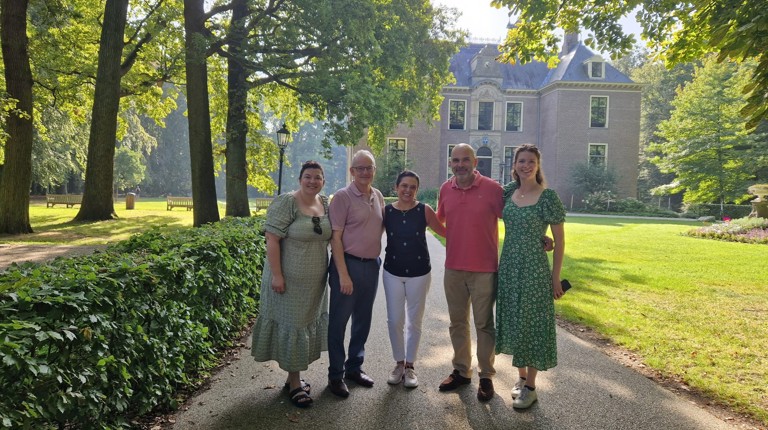The RCOG is seeking to support two UK based trainees to join the College team and Officers attending the Five Countries Meeting this year.
The Five Countries Annual Meeting involves representatives from the UK, France, the Netherlands, Germany and Belgium and the location rotates each year. In 2023 the host will be the Netherlands.
We would like to invite UK based trainees to submit a short essay (500 words max.) outlining how they would address the current issues facing gynaecology surgery in the UK.
The future of gynaecological surgery: Horizon scanning
What do you believe are the current issues in the UK and what are the possible innovative solutions to address them?
Prize: £750 each for two UK based trainees, to contribute to travel and expenses
When: Thursday 7 to Saturday 9 September 2023
Where: Leiden, the Netherlands
Eligibility
To be eligible for this award you must be a current UK based trainee on the national trainee register.
How to apply
This award is currently not open for applications.
Applications were completed and essays uploaded via the Oxford Abstracts platform.
You were prompted to register for an Oxford Abstracts account using your email address.
Applications were dealt with in accordance with the RCOG Data Protection Policy. For more information please visit RCOG Privacy Policy.
For further guidance on how to submit an application, please see Oxford Abstracts' guidance on making a submission.
Deadline: Thursday 20 July 2023, 5pm UK time
How will your application be judged?
Your essay will be reviewed against the following criteria:
- Impact: Evaluate the significance and magnitude of the issue or solution. Consider factors such as the number of patients affected, potential risks or benefits, and the overall impact on patient outcomes and quality of life.
- Feasibility: Assess the practicality and achievability of implementing the solution or addressing the issue. Consider factors such as technological feasibility, resource requirements, training implications, and potential barriers to implementation.
- Innovation: Evaluate the level of novelty and advancement offered by the solution. Consider whether the approach represents a significant departure from current practices or if it introduces innovative technologies, techniques, or processes.
- Accessibility: Consider the extent to which the solution or approach can be accessible to a wide range of patients, including those in underserved areas or with limited resources. Assess factors such as cost-effectiveness, availability, and potential for scalability.
- Patient satisfaction: Evaluate the impact of the solution or approach on patient experiences and satisfaction. Consider factors such as reduced pain, improved cosmetic outcomes, shorter recovery times, and patient involvement in decision-making.

